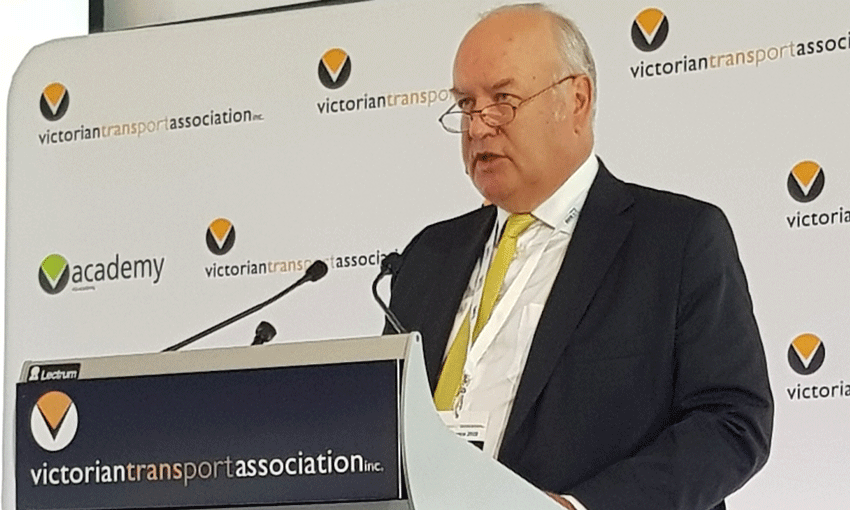ROAD transport announcements in this week’s federal budget have been welcomed by industry, albeit some policies have been questioned.
Australian Logistics Council CEO Kirk Coningham said the budget was an important step to economic recovery after the twin disasters of bushfires and COVID-19.
“As the treasurer said in his speech, one of the ways of increasing aggregate demand in the economy is through increasing government’s infrastructure investment pipeline to $110 billion over ten years,” Mr Coningham said.
“It is highly encouraging the government identifies the importance of investing in infrastructure to ensure the efficient and productive operation of the Australian economy.”
Mr Coningham offered a note of caution, however.
“Many of the investments are re-announcements of previous promises,” he said.
“It is important that industry keeps a ‘scorecard’ to see that promised investments in productive infrastructure are delivered.”
Roads Australia chief executive Michael Kilgariff praised a “suite of investments” in major transport infrastructure projects that would “provide a vital injection of construction activity at a critical time”.
“RA also welcomes the significant commitments to enhanced road safety through the $2 billion investment in shovel-ready road safety upgrades,” Mr Kilgariff said.
“The funding commitments are also important in providing certainty to industry about a reliable pipeline of future work opportunities. In such a volatile global economic climate, it is essential that companies are able to plan for the future with confidence.”
Mr Kilgariff said RA also welcomed further investment incentives included allowing businesses with a turnover of up to $5 billion to write off the full value of any eligible asset they purchase.
“Investing in workforce capacity is also critical to ensure we can attract talented people to our industry,” he said.
Victorian Transport Association CEO Peter Anderson endorsed measures he said would “give freight and logistics businesses confidence to invest”.
“In this budget, the government has rightly recognised that after a year of misery businesses need meaningful incentives that will inspire confidence to invest in themselves and future workers,” Mr Anderson said.

“Extending the instant asset write-off program will stimulate spending on new trucks, trailers, technology and other equipment to renew our aging transport fleet which will have enormous benefits for safety and productivity,” he said.
“And for those transport businesses that have been unable to work because of forced closures, the ability to carry-back losses and receive a tax credit could be just what they need to recover as our economy starts to re-open.”
SA Freight Council executive officer, Evan Knapp, today welcomed the Commonwealth’s $100m contribution towards parts of the Strzelecki Track, but also raised concerns about some key spending.
“We look forward to seeing shovels in the ground on this upgrade, and also hope for a future plan to complete the Strzelecki Track, delivering a resilient, all weather bitumen link to southwest Queensland’s cattle country, cutting many hours off the freight journey to Adelaide,” Mr Knapp said.
“We also welcome the early delivery of previously announced works on the Princes Highway Corridor, which stretches from the Victorian Border near Mt Gambier to Pt Augusta – as well as the expansion of the instant access write off scheme to businesses with a turnover of less than $5 billion, which may encourage trucking businesses to invest in newer, safer trucks.”
Mr Knapp questioned the allocation of $200m to Hahndorf road upgrades “without a completed business case” including a positive Cost Benefit Ratio.

